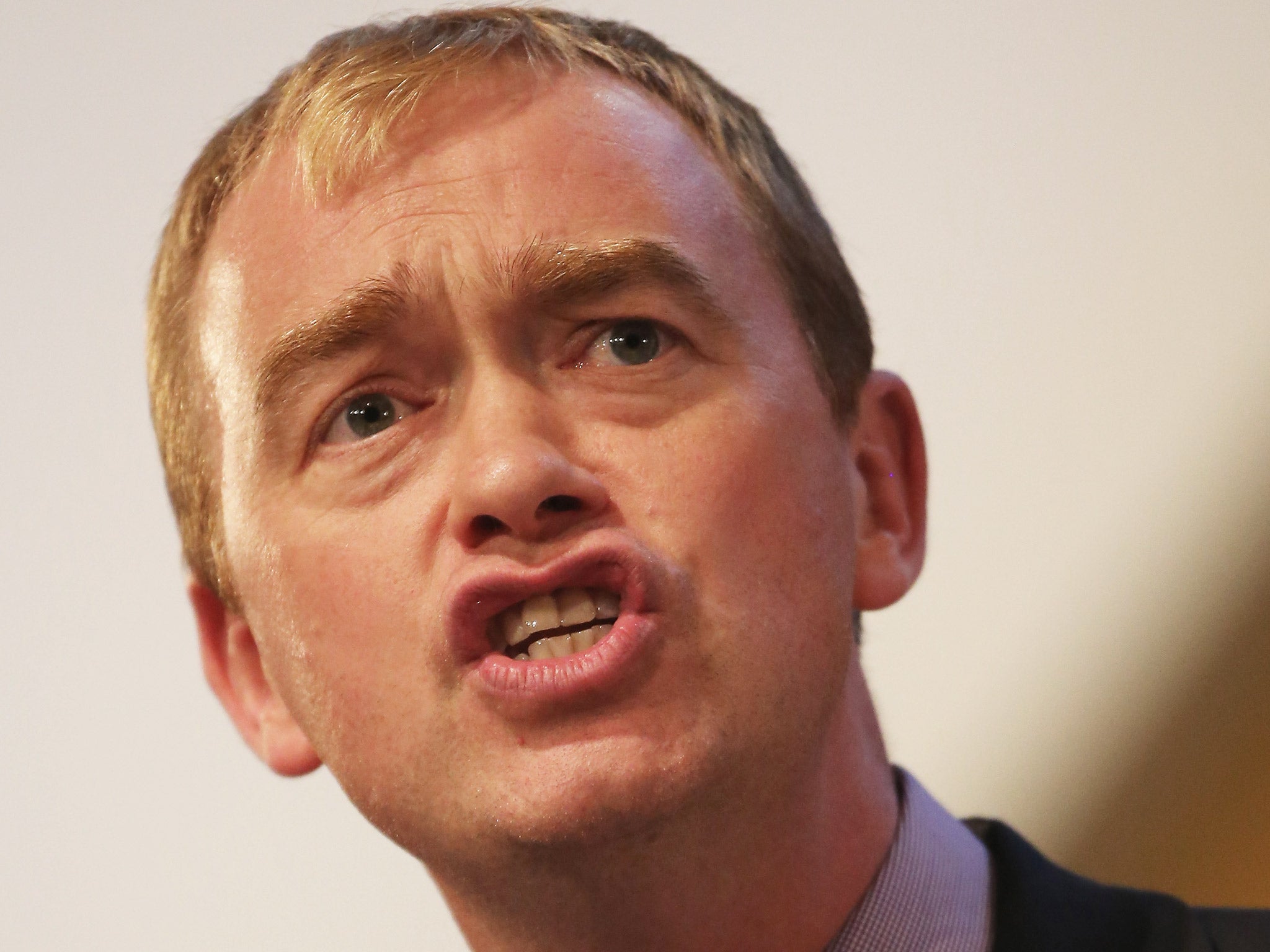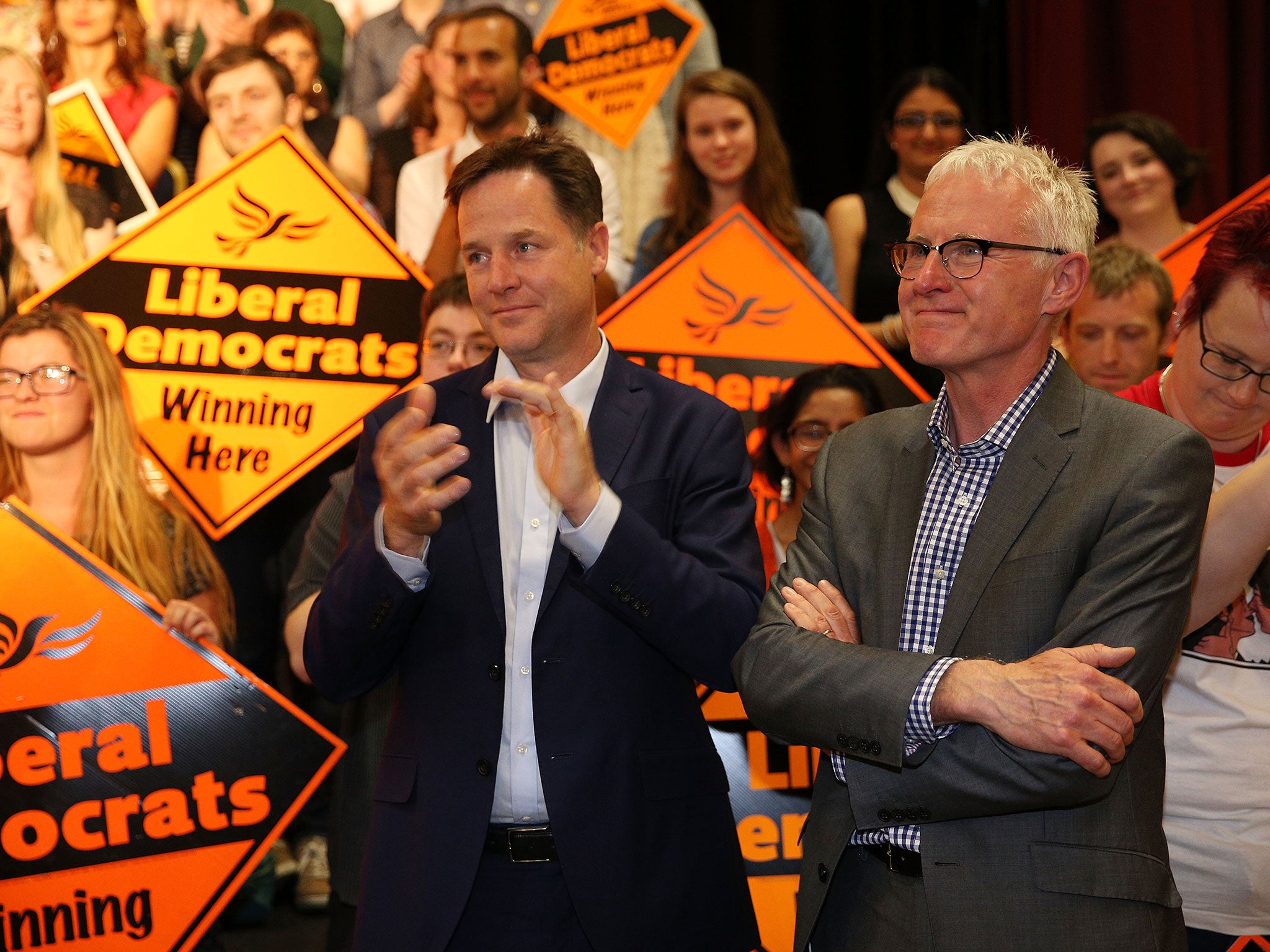Tim Farron: Is it all over for this classical liberal wing of the Lib Dems?
If Farron keeps left and Jeremy Corbyn is elected Labour leader on 12 September, who is going to win power in 2020?


The future can still be orange
Remember when orange really was the new black? In the summer of 2004, a group of radical Lib Dem MPs and parliamentary candidates contributed to a collection of essays designed to drag their party to the centre ground and make it a grown-up, credible partner in a government by proposing greater choice and market solutions in public services.
It was The Orange Book and its authors included Nick Clegg (not then an MP) and Vince Cable. Six years later when David Laws, one of the book’s editors, brokered the deal with the Conservatives to form a coalition, the project was complete.
But now that Tim Farron has defeated Norman Lamb, the candidate who came closest to The Orange Book mission, is it all over for this classical liberal wing of the Lib Dems? In his victory speech, Farron said he wanted to bring the “millions” of liberals in Britain into the Lib Dems but his politics are closer to the old SDP element of the party. To put Farron’s victory into some context: this is the first time the centre-right, establishment-backed candidate (Lamb was supported by Paddy Ashdown and Menzies Campbell) has lost a leadership election in the Lib Dems, or the former Liberal and SDP parties.

The reason for this is clear: despite Farron’s plaintive cry, “We’re not gone”, in his victory speech at Islington Assembly Hall on Thursday, the party is on its knees – its long walk in the wilderness better suits an insurgent from the left rather than an establishment figure from the right. Yet, given that the Conservative Party has just won the general election, what plans does Farron have for the future of the Lib Dems? Will his leadership amount to, as the former chief secretary to the treasury Danny Alexander suggested last week, “Syriza in sandals”? Does Farron have an appetite for power, and in what form? Do his ambitions go only as far as the town halls where the party was so dominant, or being an irritant in the Government’s side in Parliament?
It is easy, given Mhairi Black’s stirring speech in the Commons last week when the 20-year-old SNP MP shamed Labour for failing to be the strident party it once was, to think there is a heroic prestige in being in opposition. It is all very well for a party to take a year or so to “regroup”, as Farron is fond of saying, but it would be suicidal for the Lib Dems, or Labour as it toys with a Jeremy Corbyn leadership, to romanticise opposition. (And remember: the SNP is in government in Scotland, where it has taken pragmatic, hard-headed decisions.)
The Orange Book was so much more than just a book; it was and is a state of mind. Just like Blairism for Labour, which is more than just a reference to Tony Blair, it is a byword for telling voters it can be credible and trusted in power. The Orange Book tendency helped the Lib Dems into power in 2010, and not just by being able to make up the numbers for a coalition. During the 2010 election campaign Clegg was able to say to voters, in a way that sounded credible: “David Cameron is offering change but I am a bigger kind of change.” And this message denied the Tory leader an outright majority.
There are some who argue that the Lib Dems were doomed from day one of the 2010 government; the mere act of signing the Coalition Agreement was enough to all but kill the party in 2015. I disagree: I believe it was what Clegg did and did not do once in government, and how he was outplayed by the Conservatives, that led to their disastrous results in May, together with what Alexander highlights was a combination of an SNP “tsunami” in Scotland and fear in England of an SNP-Labour government that lost the Lib Dems so many seats.
It would be a mistake, therefore, for Farron to take The Orange Book from the party’s bookshelves and sell it off to a charity shop. At every Lib Dem conference since 2006, the party has passed Orange Book-style motions: on tax, Europe, Trident, nuclear power. Lib Dem activists are more centrist than they are given credit for.
Britain is a “small l” liberal country. It has just voted for the Conservative Party, which under David Cameron is positioning itself as one-nation and centrist. If Farron keeps left and Jeremy Corbyn is elected Labour leader on 12 September, who is going to win power in 2020? The Conservatives, by a landslide.
Jeremy Corbyn,takes part in a hustings in The Old Fruitmarket, Candleriggs on July 10, 2015 in Glasgow, Scotland Pass the beer nuts, Boris
At the Science Museum last week, Lynton Crosby threw a party to celebrate five years of his firm, CTF Group, and the next five years of the Conservative Government. David Cameron’s on-stage Australian accent, as he imitated the Wizard of Oz’s phrases such as “pass the beer nuts” (Aussie code for “Strewth, this is boring”) left the 200-odd guests rapt. But when the other star guest, Boris Johnson, gave his speech it was difficult to hear for all the talking. I wondered whether the Conservative parliamentary party is having its own “pass the beer nuts” moment with the London Mayor, who suffered a setback last week when Theresa May blocked his water cannon.
An ally says Johnson’s political career has been all about peaks and troughs and insists he will soon be back on top.
Off the rails
The Crosby party was held in the Making the Modern World hall at the museum, where one of the exhibits is Stephenson’s Rocket, the icon of the original northern powerhouse, whose first run was between Manchester and Liverpool. How ironic that nearly two centuries on, progress on northern railways has stalled.
Join our commenting forum
Join thought-provoking conversations, follow other Independent readers and see their replies
Comments